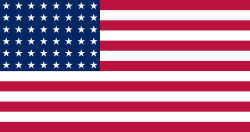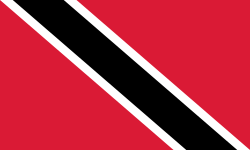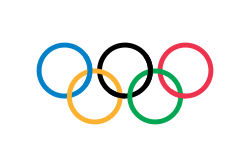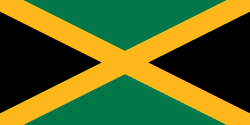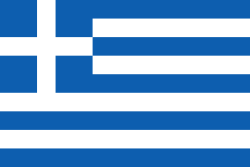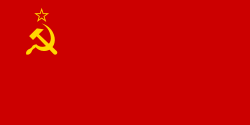Bobby Morrow
| Bobby Morrow | |
|---|---|
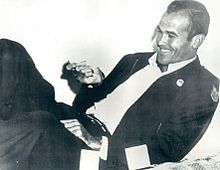 Bobby Morrow (1956) | |
| Osobní informace | |
| Narození | 15. října 1935 Harlingen |
| Úmrtí | 30. května 2020 (ve věku 84 let) San Benito |
| Stát | |
| Výška | 186 cm |
| Kariéra | |
| Disciplína | 100 m, 200 m |
| Účasti na LOH | 1956 |
| Některá data mohou pocházet z datové položky. | |
| Přehled medailí | ||
|---|---|---|
| zlato | LOH 1956 Melbourne | běh na 100 m |
| zlato | LOH 1956 Melbourne | běh na 200 m |
| zlato | LOH 1956 Melbourne | štafeta 4×100 m |
Bobby Joe Morrow (15. října 1935 Harlingen, Texas, USA - 30. května 2020, San Benito[1][2]) byl americký sportovec, atlet, sprinter. Jednalo se o trojnásobného olympijského vítěze z Letních olympijských her 1956 v australském Melbourne. Jako šestý atlet v historii olympijských her získal tzv. „běžecké double“ na trati 100 a 200 metrů. K tomu přidal zlato ze štafety na 4 × 100 metrů. Čas americké štafety byl tehdy 39,5 s, což byl nový světový rekord, který vydržel dvacet let.[3]
Byl ultrakonzervativním křesťanem.[4]
V říjnu 2006 po něm Vysoká škola v San Benitě pojmenovala stadión s kapacitou 11 000 míst.[5]
Odkazy
Reference
V tomto článku byl použit překlad textu z článku Bobby Joe Morrow na slovenské Wikipedii.
- ↑ Bobby Joe Morrow, 3-time winner in 1956 Olympics, dies at 84. apnews.com. May 30, 2020. Dostupné online [cit. May 30, 2020]. (anglicky)
- ↑ Former ACU track star, Olympic gold medal winner Bobby Joe Morrow dies
- ↑ Bobby Joe Morrow | American athlete. Encyclopedia Britannica. Dostupné online [cit. 2018-06-12]. (anglicky)
- ↑ LENGEL, David. Bobby Morrow, the greatest Olympic sprinter you've never heard of. the Guardian [online]. 2016-08-01 [cit. 2018-06-12]. Dostupné online. (anglicky)
- ↑ Bobby Morrow Stadium – San Benito, Texas. Texasbob.com (April 14, 2013). Retrieved on 2017-08-21.
Externí odkazy
 Obrázky, zvuky či videa k tématu Bobby Morrow na Wikimedia Commons
Obrázky, zvuky či videa k tématu Bobby Morrow na Wikimedia Commons - Bobby Morrow v databázi Olympedia (anglicky)
Média použitá na této stránce
Olympic Rings without "rims" (gaps between the rings), As used, eg. in the logos of the 2008 and 2016 Olympics. The colour scheme applied here was specified in 2023 guidelines.
Olympic Rings without "rims" (gaps between the rings), As used, eg. in the logos of the 2008 and 2016 Olympics. The colour scheme applied here was specified in 2023 guidelines.
US Flag with 45 stars. In use 4 July 1896–3 July 1908. Created by jacobolus using Adobe Illustrator, and released into the public domain. This flag was used during the Spanish-American War.
US Flag with 45 stars. In use 4 July 1896–3 July 1908. Created by jacobolus using Adobe Illustrator, and released into the public domain. This flag was used during the Spanish-American War.
US Flag with 48 stars. In use for 47 years from July 4, 1912, to July 3, 1959.
The Canadian Red Ensign used between 1921 and 1957.
This image has compared for accuracy (mainly colors) using an image from World Statesmen. The only change is making the maple leaves green from red. This image has compared for accuracy (mainly colors) using an image from World Statesmen. The most recent version of this image has changed the harp into one with a female figure; see [http://flagspot.net/flags/ca-1921.html FOTW
(c) I, Cmapm, CC BY-SA 3.0
The flag of the Soviet Union (1955-1991) using a darker shade of red.

(c) I, Cmapm, CC BY-SA 3.0
The flag of the Soviet Union (1955-1991) using a darker shade of red.

Olympijská vlajka
Flag of Jamaica. “The sunshine, the land is green, and the people are strong and bold” is the symbolism of the colours of the flag. GOLD represents the natural wealth and beauty of sunlight; GREEN represents hope and agricultural resources; BLACK represents the strength and creativity of the people. The original symbolism, however, was "Hardships there are, but the land is green, and the sun shineth", where BLACK represented the hardships being faced.
US Flag with 46 stars. In use 4 July 1908–3 July 1912. Created by jacobolus using Adobe Illustrator, and released into the public domain.
Other version: Image:US 46 Star Flag.svgUS Flag with 44 stars. In use 4 July 1891–3 July 1896. Created by jacobolus using Adobe Illustrator, and released into the public domain.
Bobby Morrow in 1956
Flag of the unified Team of Germany for the Olympic Games, 1960–1968.




